#iot cloud
Explore tagged Tumblr posts
Text
Future Of Iot In The Automotive Industry
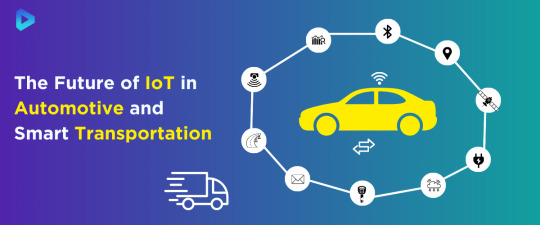
The automotive industry is undergoing a significant transformation with the integration of IoT technologies. Connected cars and smart transportation systems are becoming the norm, enhancing safety, efficiency, and convenience. In this blog, we explore how various IoT technologies and platforms are shaping the future of the automotive sector.
Role of IoT Devices in Connected Cars
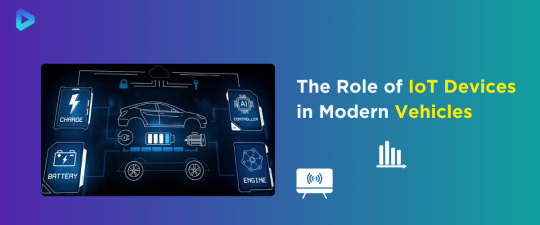
Importance of IoT Devices in Modern Automobiles
IoT devices are pivotal in modern automobiles, significantly enhancing their functionality and safety features. These devices facilitate seamless communication between vehicles and infrastructure, leading to improved traffic management and reduced accident rates. Sensors gather real-time data on how vehicles perform and how drivers behave. This information is crucial for predictive maintenance and enhancing the overall driving experience. IoT devices monitor crucial parameters like tire pressure, engine health, and fuel levels. These sensors issue prompt alerts for required maintenance.
Enhancing Vehicle Functionality with IoT Integration
Integrating IoT into vehicles drastically enhances their functionality, offering a range of advanced features. Smart cars can now include autonomous driving capabilities, real-time navigation, and personalized infotainment systems. IoT integration allows vehicles to interact with smart city infrastructure. This optimizes routes based on current traffic conditions to reduce travel time. IoT-powered navigation systems offer real-time traffic updates and recommend alternative routes to bypass congestion. IoT facilitates advanced driver-assistance systems (ADAS), including features such as adaptive cruise control, lane-keeping assistance, and automated parking.
Key Features of IoT-Enabled Automotive Systems
IoT-powered automotive systems incorporate various features that significantly boost safety and convenience for both drivers and manufacturers. These features include:
Real-Time Monitoring: Continuous monitoring of vehicle performance and health, providing timely alerts for maintenance and repairs.
Remote Diagnostics: Allowing technicians to diagnose and fix issues remotely, reducing downtime and improving efficiency.
Enhanced Connectivity: Enabling vehicles to communicate with each other and infrastructure, improving traffic management, and reducing accidents.
Advanced Security: Implementing robust security measures to protect vehicle data from unauthorized access and ensure data integrity.
Personalized Experience: Customizing infotainment systems based on driver preferences, providing a more enjoyable driving experience.
Impact of IoT Cloud on Smart Transportation
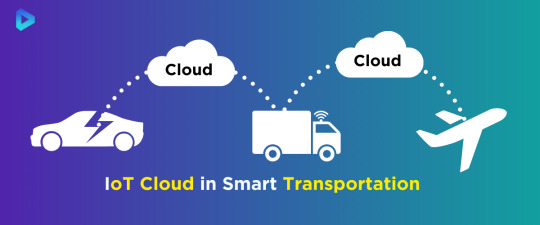
How IoT Cloud Enhances Vehicle Connectivity
The IoT Cloud significantly enhances vehicle connectivity by enabling seamless communication between vehicles and other connected devices. Vehicles can share real-time information with each other and with infrastructure systems through IoT Cloud platforms. This improves traffic flow and safety. Connected cars can communicate traffic conditions, road hazards, and optimal routes to each other. This information assists drivers in making informed choices and steering clear of traffic jams. IoT Cloud services allow for over-the-air updates. This ensures that vehicle software remains up-to-date with the latest features and security patches.
Real-Time Data Processing with IoT Cloud
Real-time data processing is a critical capability of IoT Cloud solutions. It enables vehicles to react promptly to changing conditions. The IoT Cloud processes vast amounts of data generated by sensors and devices in connected cars instantly. This immediate analysis of data allows for timely actions, such as adjusting vehicle speed to avoid collisions, optimizing fuel usage, and enhancing navigation accuracy. When a connected vehicle detects a sudden slowdown in traffic, the IoT Cloud processes this data. It then sends alerts to nearby vehicles, helping to prevent accidents. Real-time processing supports advanced driver-assistance systems (ADAS). It provides the necessary data for features like lane-keeping and adaptive cruise control.
Cost Benefits of Implementing IoT Cloud Solutions
Implementing IoT Cloud solutions offers significant cost benefits for the automotive industry. A major benefit is the decrease in infrastructure expenses. IoT Cloud services eliminate the need for extensive on-premises hardware and maintenance. Additionally, IoT Cloud solutions enable predictive maintenance, which helps identify potential vehicle issues before they become costly problems. By addressing maintenance needs proactively, companies can reduce downtime and extend the lifespan of their vehicles. IoT Cloud services allow businesses to pay only for the resources they use. This approach makes it a cost-effective solution for both small startups and large organizations.
Industrial IoT Advancements in the Automotive Sector
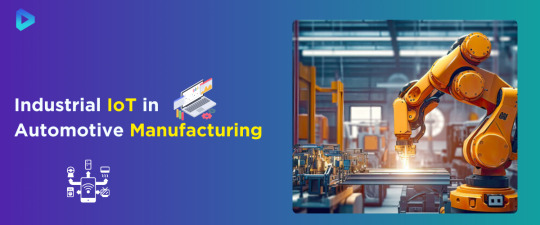
Industrial IoT Applications in Vehicle Manufacturing
Industrial IoT (IIoT) has changed vehicle manufacturing by integrating advanced sensors, data analytics, and automation technologies. These applications enable real-time monitoring and control of manufacturing processes, ensuring higher precision and quality. For example, IoT sensors can monitor equipment performance and detect anomalies, allowing for immediate adjustments to maintain optimal production conditions. Additionally, IIoT enables better inventory management through automated tracking of parts and materials, reducing waste and ensuring that production lines run smoothly. The integration of IIoT in vehicle manufacturing also facilitates seamless communication between machines and systems, improving coordination and efficiency across the production floor.
Improving Production Efficiency with Industrial IoT
Implementing Industrial IoT solutions significantly improves production efficiency in the automotive sector. By providing real-time data on production processes, IIoT helps identify bottlenecks and areas for improvement. For instance, IoT-enabled machinery can automatically adjust settings to optimize performance and minimize energy consumption. This leads to reduced downtime and increased throughput. IIoT monitors the usage of raw materials and energy, ensuring efficient resource management. The insights gained from IIoT data analytics enable manufacturers to streamline operations, reduce costs, and enhance overall productivity.
Predictive Maintenance in the Automotive Industry
Predictive maintenance is a key benefit of Industrial IoT in the automotive industry. IoT sensors monitor the condition of machinery and equipment, allowing manufacturers to predict maintenance needs, which helps prevent unexpected breakdowns and costly repairs. Vibration sensors on motors can detect early signs of wear and tear. They prompt timely maintenance before a failure occurs. This proactive approach extends the lifespan of equipment and reduces downtime, leading to significant cost savings. Additionally, predictive maintenance helps ensure consistent product quality by maintaining optimal operating conditions for machinery.
Advantages of Using Azure IoT Hub for Vehicles
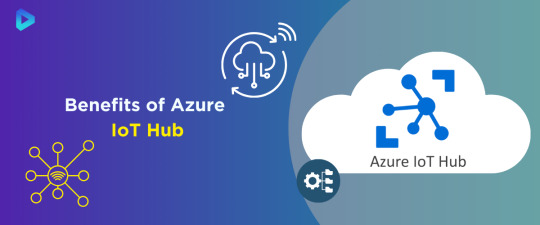
Integrating Azure IoT Hub with Automotive Systems
Integrating Azure IoT Hub with automotive systems offers numerous benefits, enabling seamless communication and data exchange between connected vehicles and cloud services. This integration facilitates real-time monitoring and control of vehicle functions, enhancing both performance and safety. Manufacturers can use Azure IoT Hub to gather and analyze data from sensors embedded in vehicles. The system provides insights into engine health, fuel efficiency, and driver behavior. The integration supports over-the-air (OTA) updates. Vehicle software remains current with the latest features and security patches.
Features of Azure IoT Hub for Smart Cars
Azure IoT Hub offers a range of features that are particularly beneficial for smart cars. These features include:
Device Management: Enables remote monitoring and control of vehicle systems, allowing manufacturers to diagnose issues and deploy updates without physical access.
Data Ingestion and Analysis: Collects and processes large volumes of data from connected vehicles, providing actionable insights for improving vehicle performance and safety.
Security: Implements robust security protocols to protect vehicle data from unauthorized access and cyber threats.
Compatibility: Supports integration with various IoT devices and platforms, ensuring seamless communication across different systems.
Scalability: Azure IoT Hub can handle a vast number of connected devices. The capability is suitable for large-scale deployments in the automotive industry.
Scalability Benefits of Azure IoT Hub
Azure IoT Hub's ability to grow is a significant advantage. It is crucial for automotive manufacturers and service providers. Azure IoT Hub can efficiently manage and process data from millions of connected vehicles. This ensures consistent performance regardless of the scale of deployment. This ability to grow allows automotive companies to expand their IoT solutions as their fleet grows. It ensures there is no compromise on performance or reliability. Additionally, Azure IoT Hub's scalable architecture supports diverse use cases, from small pilot projects to large-scale commercial deployments.
Using Thingspeak for Automotive Data Analysis

Thingspeak Applications in Vehicle Diagnostics
Thingspeak is a powerful tool for vehicle diagnostics, offering real-time data analysis and insights. By leveraging Thingspeak, automotive companies can monitor engine performance, fuel efficiency, and other critical parameters. This data helps in identifying potential issues before they become serious problems, enabling proactive maintenance. For instance, Thingspeak can track temperature variations in engine components, alerting technicians to possible overheating issues. This application of Thingspeak in vehicle diagnostics not only improves vehicle reliability but also enhances the safety and satisfaction of the driver.
Real-Time Monitoring with Thingspeak for Cars
Real-time monitoring is one of the standout features of Thingspeak for cars. Thingspeak collects and processes data from various sensors in real-time. This provides instant insights into vehicle performance and health. This capability allows for immediate response to any problems or malfunctions, reducing the risk of breakdowns. If a vehicle's tire pressure drops below a safe level, Thingspeak can instantly alert the driver. It can also suggest nearby service stations.
Data Visualization Capabilities of Thingspeak
The data visualization capabilities of Thingspeak are essential for making sense of complex automotive data. With its powerful visualization tools, Thingspeak can transform raw data into easily understandable graphs and charts. This helps automotive engineers and technicians quickly identify trends and patterns, helping better decision-making. For instance, Thingspeak can display a heat map of engine performance, highlighting areas that require attention. Teams can share these displays across departments, improving collaboration and efficiency in addressing vehicle issues.
Verizon Thingspace and Its Automotive Applications
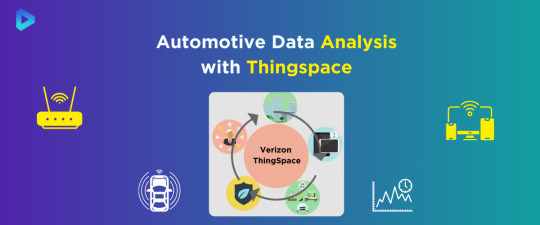
Connecting Vehicles with Verizon Thingspace
Verizon Thingspace provides robust solutions for connecting vehicles, helping seamless communication between cars, infrastructure, and cloud services. By leveraging Verizon's reliable network, automotive companies can ensure that their vehicles remain connected, regardless of location. Connectivity allows for real-time data exchange. It enables features such as remote diagnostics, over-the-air updates, and enhanced navigation services. A connected car can receive software updates and new features without needing a visit to the dealership. The vehicle always has the latest capabilities.
Features of Verizon Thingspace for Automotive Industry
Verizon Thingspace offers a variety of features tailored specifically for the automotive industry. Key features include:
Device Management: Simplifies the process of managing multiple connected devices, ensuring they are functioning correctly and securely.
Data Analytics: Provides powerful tools for analyzing vehicle data, helping manufacturers improve performance and efficiency.
Security: Advanced encryption and verification protocols protect data transmitted between vehicles and the cloud.
Scalability: Supports the growth of connected vehicle fleets, making it easy to add new devices and scale operations.
Enhancing Vehicle Connectivity with Verizon Thingspace
Verizon Thingspace significantly enhances vehicle connectivity by providing a robust and scalable platform for IoT applications. The platform enables vehicles to communicate seamlessly with each other and with external systems. It helps with traffic management, emergency response, and fleet management. Enhanced connectivity also allows for better integration with smart city infrastructure, improving overall transportation efficiency. Connected cars can share real-time traffic data with city planners. This sharing helps to reduce congestion and improve road safety.
Let's Discuss Your Idea
#IoT#IoT Devices#IoT Cloud#Industrial IoT#Azure IoT Hub#Thingspeak#Verizon Thingspace#Iot Internet#Internet Of All Things#ai#blockchain#iotsolutions#iot applications#iot development services#iot tech
1 note
·
View note
Text
IoT Cloud Market
IoT Cloud Market

0 notes
Text
Modern software development be like: I wrote 10 lines of code to call an API that calls another API, which calls yet another API that finally turns on a lightbulb. Pray that Cloudflare or AWS will not be down during this operation; otherwise, there will be no light for you.
119 notes
·
View notes
Text

In today’s fast-paced business world, selecting the right VoIP hotel phone system can make all the difference for your company. Here’s how to choose the best VoIP phone system for your needs a reliable VoIP system ensures seamless communication. Learn More...
#cloud technology#hotel hospitality#hotel pbx#hotel phone system#best voip phone system#voip hotel phone#hotel phone installation#phonesuite pbx#voiceware by phonesuite#unified communications#ip telephony#phonesuite voiceware#voip hotel phone systems#cloud pbx#IoT Technology#phonesuite#communication#telephone systems#mobile phones#telephone system
9 notes
·
View notes
Text
WordPress Security Services Tailored to Your Business Needs
Atcuality understands that every WordPress website has unique security needs. Our specialized WordPress security services provide customized solutions to safeguard your website from malicious attacks, unauthorized access, and technical vulnerabilities. Whether you own a blog, corporate website, or online store, our comprehensive approach includes malware scanning, vulnerability patching, firewall implementation, and site backups. Atcuality’s team of security professionals works tirelessly to monitor and eliminate threats before they can impact your business. With advanced tools and strategies like SSL encryption and uptime monitoring, we ensure your website operates securely while maintaining peak performance. Cyber threats evolve daily, but with Atcuality, you can stay one step ahead. Don’t let your website become a target—secure your site and maintain customer trust with our proven WordPress security solutions.
#seo marketing#seo services#artificial intelligence#digital marketing#iot applications#seo company#seo agency#amazon web services#azure cloud services#ai powered application#ai applications#ai app development#virtual reality#vr development#vr games#wordpress#web developers#web development#web design#web developing company#website developer near me#wordpress development#web hosting#website#augmented and virtual reality market#augmented human c4 621#augmented intelligence#augmented reality#iot#iotsolutions
4 notes
·
View notes
Text

Acadecraft Partners with Wadhwani Foundation's Government Digital Transformation Initiative to Develop eLearning Courses
#digitaltransformation#technology#innovation#business#digitalmarketing#ai#digital#artificialintelligence#software#machinelearning#automation#businessgrowth#tech#iot#techinnovation#bigdata#cybersecurity#cloud#data#cloudcomputing#smallbusiness#customerexperience#marketing#sap#webdevelopment#erp#blockchain#analytics#ecommerce#datascience
2 notes
·
View notes
Text
Elevate Your Website’s Security with WordPress Security Services
Your WordPress website is a valuable asset that deserves top-tier protection. At Atcuality, we provide comprehensive WordPress security services to safeguard your site from cyberattacks and data breaches. Our team starts with an in-depth analysis of your website’s security framework, identifying and addressing vulnerabilities. We implement state-of-the-art measures such as malware scanning, brute force protection, and database encryption to enhance your site’s security posture. Additionally, we offer ongoing maintenance and support to ensure your site remains secure over time. With Atcuality, your website is not only protected but optimized for performance. Trust us to keep your digital assets safe and help you maintain a competitive edge in the online world.
#wordpress#website#web development#web design#web developing company#website development#web developers#ai generated#artificial intelligence#ai applications#iot#iot applications#iot development services#iotsolutions#iot platform#digitaltransformation#technologynews#techinnovation#augmented reality#augmented human c4 621#augmented and virtual reality market#augmented intelligence#metaverse#virtual reality#ar vr technology#amazon services#cloud server hosting#ssl#sslcertificate#ssl certificates
2 notes
·
View notes
Text
Why Choose a Salesforce Cloud Data Platform Course Online?
Master Salesforce Cloud Data Platform Course with an advanced online course designed for data-driven professionals. Learn to manage customer data, implement effective marketing strategies, and streamline sales processes using Salesforce CDP. This hands-on course includes real-world projects, expert mentorship, and certification preparation. Enhance your data integration and analysis skills to drive business success. Enroll today to transform your career with Salesforce expertise!
#salesforce cloud data platform course#mulesoft training online#mulesoft course online#mulesoft online training#aws course online#togaf training online#hr training online classes#catia training online#rpa training online#catia course online#aws training online#online certification trainings#blockchain training online#tally training online#rpa course online#catia online training#blockchain online training#catia online course#servicenow training online#togaf course online#hadoop online training#servicenow course online#iot training online#salesforce marketing cloud online training#internet of things online course#hr online training#internet of things online training#rpa online course#online training courses#online cad training
2 notes
·
View notes
Text
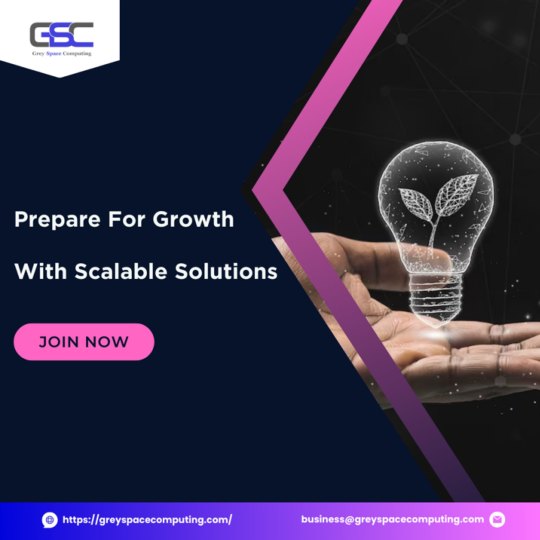
Growth is exciting, but only if your app can handle it! Cloud technology ensures your app scales effortlessly to meet increasing demand. 📈 Get ready for success! 🔗Learn more: https://greyspacecomputing.com/custom-mobile-application-development-services/ 📧 Visit: https://greyspacecomputing.com/portfolio
#GreySpaceComputing#CloudTech#AppScalability#cloudcomputing#cloud#technology#cybersecurity#aws#bigdata#devops#it#datacenter#azure#cloudstorage#linux#programming#software#tech#iot#cloudservices#coding#cloudsecurity#machinelearning#informationtechnology#datascience#business#python#security#microsoft#dataprotection
2 notes
·
View notes
Text
My Journey with Azure IoT Hub: Connecting and Managing IoT Devices at Scale
The Internet of Things (IoT), which enables seamless connectivity and automation across numerous industries, has completely changed the way we engage with technology. I was curious to learn more about the Internet of Things and its possible uses as an aspiring IoT enthusiast. My experience using Azure IoT Hub, Microsoft’s cloud-based IoT platform, and how it assisted me in connecting and managing IoT devices at scale are both discussed in this blog.
Getting Started with Azure IoT Hub

To embark on my IoT journey, I began by understanding the fundamentals of Azure IoT Hub. Azure IoT Hub is a fully managed service that acts as a central hub for bi-directional communication between IoT devices and the cloud. It provides secure, reliable, and scalable connectivity for IoT solutions. Setting up an Azure IoT Hub was my first step. While the process was relatively straightforward, I encountered a few challenges along the way.
Connecting IoT Devices
Once Azure IoT Hub was set up, I delved into the world of IoT devices. I worked with various types of IoT devices, ranging from simple sensors to complex industrial machines. Connecting these devices to Azure IoT Hub required the implementation of device-specific protocols such as MQTT or HTTP. Additionally, I focused on securing device connections and data transmission by utilizing security features provided by Azure IoT Hub.
Real-world examples of IoT devices connected to Azure IoT Hub are aplenty. For instance, in the healthcare industry, wearable devices can transmit patient vitals to Azure IoT Hub, allowing healthcare providers to monitor and respond to critical situations promptly. In smart homes, IoT devices such as thermostats and security cameras can be connected to Azure IoT Hub, enabling remote control and monitoring capabilities.
Managing IoT Devices at Scale
As my IoT project grew, I encountered the need to scale up the number of connected devices. Azure IoT Hub offered robust device management features that simplified the process of managing a large fleet of devices. I could remotely monitor the health, status, and firmware version of each device, enabling efficient troubleshooting and maintenance. Implementing best practices for device management, such as grouping devices based on location or functionality, enhanced the overall operational efficiency of my IoT solution.
Data Ingestion and Processing
Data collected from IoT devices is a valuable asset that can drive actionable insights and informed decision-making. Azure IoT Hub facilitated the ingestion and routing of data to Azure services for further processing and analysis. I had the opportunity to work with Azure Stream Analytics and Azure Functions, which enabled real-time data processing, transformation, and visualization. Leveraging these services allowed me to unlock the true potential of IoT data and derive meaningful insights.
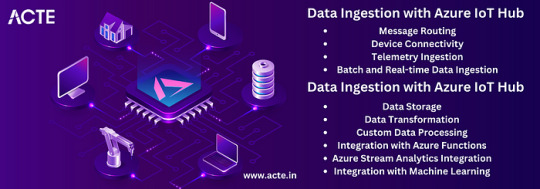
Security and Compliance
Any IoT solution must prioritize security. Azure IoT Hub provided robust security features that ensured end-to-end protection of IoT deployments. These features included device authentication, message encryption, and integration with Azure Active Directory for access control. Additionally, Azure IoT Hub helped me meet compliance and regulatory requirements by providing built-in support for industry standards such as ISO 27001, HIPAA, and GDPR. Throughout my journey, I learned valuable lessons and implemented best practices for securing IoT solutions.
Scalability and Performance
Scaling an IoT solution to handle thousands or millions of devices is a complex task. Azure IoT Hub offered scalability features that allowed me to effortlessly handle large-scale IoT deployments. With Azure IoT Hub’s device-to-cloud messaging capabilities, I could reliably transmit messages to and from a massive number of devices. Moreover, I gained insights into optimizing IoT solutions for performance by considering factors such as message size, frequency, and device capabilities.
Real-World Use Cases
To understand the versatility of Azure IoT Hub, it is crucial to explore real-world use cases. In the manufacturing industry, Azure IoT Hub can be leveraged to connect and monitor machines on the factory floor, ensuring optimal performance and predictive maintenance. In the agriculture sector, IoT devices connected to Azure IoT Hub can collect data on soil moisture levels, temperature, and humidity, enabling farmers to make data-driven decisions for irrigation and crop management. These use cases highlight the valuable role that Azure IoT Hub plays in various domains and industries.
Future of IoT and Azure IoT Hub
The future of IoT is promising, with emerging trends shaping the landscape. As IoT continues to evolve, Azure IoT Hub will play a crucial role in enabling seamless connectivity, advanced analytics, and artificial intelligence capabilities. Integration with other Azure services and continuous updates from Microsoft ensure that Azure IoT Hub remains at the forefront of IoT innovation. The possibilities for IoT applications are limitless, and Azure IoT Hub will continue to empower developers and organizations to build robust and scalable IoT solutions.
Throughout my journey with Azure IoT Hub, I gained valuable insights and experiences. Azure IoT Hub simplified the process of connecting and managing IoT devices, providing a reliable and scalable platform. The seamless integration with other Azure services allowed me to unlock the full potential of IoT data. Moreover, the security and compliance features provided peace of mind, ensuring that my IoT solution was protected from threats. Overall, Azure IoT Hub has been instrumental in my IoT journey, contributing to enhanced efficiency and productivity.
Recommendations and Tips
For those interested in starting their own IoT journey with Azure IoT Hub, I offer the following recommendations and tips:
Begin with a clear understanding of your IoT use case and requirements.
Familiarize yourself with the documentation and resources provided by Microsoft to gain a solid foundation.
Start small and gradually scale your IoT solution as needed.
Take advantage of the device management and security features offered by Azure IoT Hub.
Leverage other Azure services such as Azure Stream Analytics and Azure Functions to derive meaningful insights from IoT data.
Stay updated on emerging trends and best practices in the IoT space.
To deepen your knowledge of IoT and Azure IoT Hub, I recommend exploring Microsoft’s official documentation, participating in the ACTE Technologies Microsoft Azure training, and attending IoT-focused conferences and events.

Azure IoT Hub has proven to be a powerful and comprehensive platform for connecting and managing IoT devices at scale. Throughout my journey, I witnessed the transformative potential of IoT solutions and the crucial role played by Azure IoT Hub in enabling seamless connectivity, advanced analytics, and robust security. As IoT continues to evolve, Azure IoT Hub will undoubtedly remain at the forefront of IoT innovation, empowering organizations to build scalable and efficient IoT solutions. I encourage readers to embark on their own IoT journeys, leveraging the capabilities of Azure IoT Hub to unlock the full potential of IoT. Join me in embracing the future of IoT and revolutionizing industries through connected devices. Please leave your comments, stories, and inquiries in the space provided below. Let’s continue the conversation and explore the endless possibilities of IoT together.
#microsoft azure#cloud services#information technology#education#tech#technology#iot#innovation#cloud computing
5 notes
·
View notes
Text
Azure IoT Central: Revolutionizing IoT Solutions for Manufacturing Industries
Azure IoT Central is a cutting-edge platform built on the foundation of Azure IoT, offering a model-based approach to empower businesses in constructing enterprise-grade IoT solutions. Designed with the aim of eliminating the need for cloud-solution development expertise, Azure IoT Central provides a comprehensive software as a service (SaaS) solution. With its built-in templates for various industries, device provisioning services, and feature-rich dashboards, it enables seamless monitoring of device health, connectivity, management, and communication.
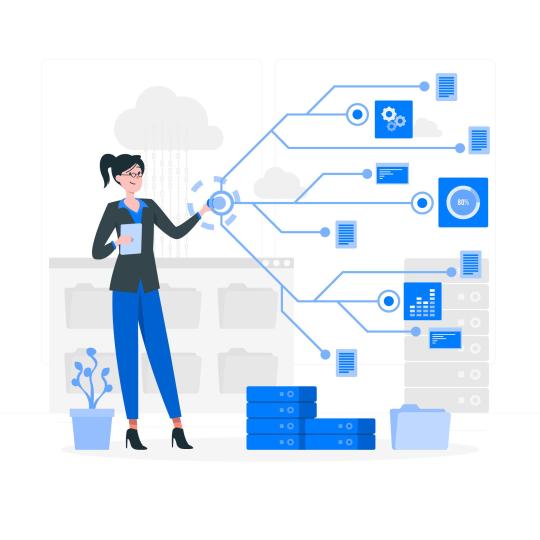
Streamlining Manufacturing Operations with Azure IoT Central
In the realm of manufacturing, Azure IoT Central proves to be a game-changer by facilitating the seamless connection, management, and monitoring of industrial assets. By leveraging Azure IoT Central, manufacturing industries can effortlessly integrate data into their applications, enabling them to make data-driven decisions and unlock operational efficiencies. With its user-friendly interface and powerful capabilities, Azure IoT Central empowers manufacturers to gain valuable insights from their assets and drive productivity.
Key Features and Benefits
Template-based Solution: Azure IoT Central offers pre-built templates tailored for various industries, enabling businesses to quickly deploy IoT solutions without extensive customization. These templates encompass a wide range of applications, including asset tracking, predictive maintenance, and remote monitoring, among others.
Device Provisioning Services: Simplifying the process of onboarding devices, Azure IoT Central provides robust device provisioning services. This feature streamlines the connection and configuration of devices, ensuring seamless integration into the IoT ecosystem.
Comprehensive Dashboard: Azure IoT Central's intuitive dashboard empowers businesses to monitor and manage their IoT devices effectively. From tracking device health and connectivity to managing firmware updates and troubleshooting, the dashboard provides real-time insights and facilitates proactive maintenance.
Secure and Scalable: Built on the trusted Azure IoT platform, Azure IoT Central ensures top-notch security for sensitive data and device communications. Moreover, it offers scalability to accommodate growing business needs, allowing seamless expansion without compromising performance.
Integration Capabilities: Azure IoT Central seamlessly integrates with other Azure services, such as Azure Machine Learning and Azure Stream Analytics, enabling advanced analytics, machine learning capabilities, and seamless data integration across the Azure ecosystem.
Unlocking the Potential of IoT in Manufacturing
By harnessing the power of Azure IoT Central, manufacturing industries can revolutionize their operations and tap into the full potential of IoT. Here's how Azure IoT Central can benefit manufacturing businesses:
Enhanced Operational Efficiency: Real-time monitoring and analysis of industrial assets enable proactive maintenance, minimizing downtime and optimizing operations. Predictive maintenance and condition monitoring enable businesses to identify and address potential issues before they escalate.
Improved Product Quality: IoT-enabled sensors and devices collect data throughout the production process, ensuring quality control and adherence to standards. Businesses can gain valuable insights into product performance, identify defects, and take corrective measures promptly.
Cost Optimization: By leveraging Azure IoT Central, manufacturers can optimize resource allocation, reduce energy consumption, and streamline maintenance processes. Data-driven insights enable businesses to make informed decisions, resulting in cost savings and improved profitability.
Enhanced Safety and Compliance: IoT devices and sensors can monitor environmental conditions, ensuring a safe working environment for employees. Moreover, businesses can leverage IoT data to comply with industry regulations and maintain quality standards.
Get Started with Azure IoT Central Today
Take the first step toward transforming your manufacturing operations with Azure IoT Central. Leverage its advanced features, comprehensive templates, and user-friendly interface to build robust IoT solutions that propel your business forward. Embrace the power of data, streamline your operations, and unlock unparalleled insights with Azure IoT Central.
#Azure IoT Central#IoT solutions#Azure IoT solutions#Azure IoT cloud services#Azure IoT application development#Azure IoT cloud integration#Azure IoT analytics
2 notes
·
View notes
Text
Hospitality Meets Technology: Web Solutions for Mumbai’s Hotel Industry
Introduction to Mumbai’s Dynamic Hotel Industry
The Growing Demand for Accommodation in Mumbai
Mumbai, India's financial capital and a hub for tourism, business, entertainment, and culture, sees an ever-increasing influx of travelers. Whether it's business executives attending meetings in Bandra-Kurla Complex, Bollywood aspirants visiting Andheri, or tourists exploring the Gateway of India, the demand for accommodation is sky-high. From budget guesthouses to luxury five-star resorts, Mumbai's hospitality sector is as diverse as its population.
But with this demand comes intense competition. Hotels now face a more informed and tech-savvy traveler who compares options, reads reviews, and expects seamless booking and personalized services at their fingertips. Gone are the days when a prime location alone ensured full occupancy. In today’s digital-first era, hotels need to do more than offer a bed—they must offer a tech-powered experience from the moment a guest discovers them online.
The post-pandemic world has further accelerated digital transformation in hospitality. Contactless services, real-time information, and mobile-first experiences are now non-negotiable. Hotels that embrace technology not only meet guest expectations but also gain a significant competitive edge. And in a market as dynamic and crowded as Mumbai, standing out digitally is no longer optional—it’s survival.
Role of Technology in Shaping the Hospitality Experience
Technology isn’t just a tool—it’s a game-changer in the hospitality industry. For Mumbai hotels, it’s helping redefine guest experiences in ways that were once unimaginable. From booking a stay online to controlling room temperature with a smartphone, tech is making everything faster, smoother, and more personal.
Think of a traveler landing at Chhatrapati Shivaji Maharaj International Airport. With just a few taps, they can search for nearby hotels, read real-time reviews, view virtual tours, check availability, and make a booking. Once at the hotel, self-check-in kiosks, app-based room keys, and AI-powered assistants enhance their stay. Behind the scenes, cloud-based property management systems (PMS), customer relationship management (CRM) tools, and analytics software help hotels manage operations, tailor services, and forecast demand.
In Mumbai, where the pressure to deliver is constant and space is a premium, technology also helps streamline operations. Smart energy systems, IoT devices, and digital inventory tools make operations leaner and more cost-effective. Whether it's a chain in South Mumbai or a boutique hotel in Bandra, embracing web solutions is the path forward.
Evolution of Hotel Management Through Technology
From Manual Bookings to Automated Systems
Let’s rewind to a couple of decades ago. Hotel bookings in Mumbai were primarily manual—guests called, faxed, or walked in to make reservations. Ledger books ruled the reception desks, and overbookings were common. Fast forward to today, and we see a completely transformed landscape. Technology has turned these once manual processes into smooth, automated systems that work round-the-clock.
Online reservation systems, channel managers, and PMS have revolutionized hotel management. These tools allow properties to manage inventory, rates, and guest information across multiple platforms in real time. What used to take hours now happens in seconds, minimizing errors and maximizing efficiency. In a city like Mumbai where every second counts, this shift is monumental.
And it's not just about bookings. Automating everything from housekeeping schedules to inventory management has allowed hotel staff to focus more on guest interaction and service delivery. With cloud-based platforms, managers can now oversee operations remotely, even from their smartphones, giving them greater flexibility and control.
Benefits of Tech Integration for Hotels in Mumbai
For Mumbai’s hoteliers, integrating tech isn’t just a luxury—it’s an essential strategy for staying relevant. One of the biggest perks? Enhanced guest satisfaction. Tech makes things faster and more convenient, and that’s what today’s travelers want. Think about mobile check-ins, digital concierge services, and voice-controlled room features—these aren’t just cool, they’re practical.
Then there’s the financial side. Automating processes leads to cost savings. With fewer manual errors, optimized staff scheduling, and better resource management, hotels can significantly cut down on operational expenses. Tech also opens the door to upselling and cross-selling opportunities—be it spa packages, late checkouts, or airport transfers—through personalized marketing.
Perhaps the most underrated benefit is data. With digital systems, hotels can collect, analyze, and act on data to improve services. Understanding guest preferences, booking patterns, and peak seasons allows for better planning and targeted marketing. In a competitive market like Mumbai, this kind of insight is pure gold.
Website Development: The New Hotel Front Desk
First Impressions Matter: Importance of Web Design
Think of your hotel's website as your digital lobby. It’s the first impression potential guests get before they ever step foot on your property. For Mumbai hotels, especially those competing in a saturated market, a professional and compelling website can make all the difference. A well-designed site does more than just look pretty—it builds trust, communicates brand identity, and acts as a powerful conversion tool.
When a traveler searches for “hotels in Mumbai near Marine Drive” and lands on your site, you have just seconds to capture their interest. That’s why clean layouts, high-quality visuals, and intuitive navigation are key. From the logo to the typography and even the color scheme, every detail needs to convey professionalism and warmth. More importantly, the site must load quickly—because in a fast-paced city like Mumbai, nobody waits more than a few seconds.
Moreover, your website should clearly showcase your hotel’s unique selling points. Whether it’s a rooftop restaurant overlooking the Arabian Sea or a heritage vibe in Colaba, your design should bring that experience to life. Engaging content, embedded videos, and interactive elements can immerse visitors and make your property memorable. A high-converting website is the foundation of your online presence—and in today’s hospitality game, it’s your digital handshake with the world.
Responsive, Mobile-Friendly, and User-Centric Features
Mumbai is a city on the move, and so are its travelers. That means your hotel website needs to work flawlessly on every device—especially smartphones. With over 70% of hotel bookings now coming from mobile users, a mobile-first approach isn’t just nice to have, it’s absolutely critical. A site that doesn’t adapt to screens or takes forever to load? That’s a surefire way to lose business.
Responsive web design ensures that your site looks and performs well on any screen size—from a desktop in an office to a smartphone in a cab. But responsiveness goes beyond just resizing. It means clickable buttons, thumb-friendly navigation, and seamless integration of booking engines. It also includes features like tap-to-call, Google Maps directions, and language localization, all of which are particularly important in a city as diverse and multilingual as Mumbai.
User-centricity is another pillar of great website design. Your site must cater to your users’ needs: clear information about rooms and amenities, easy-to-read policies, high-quality photos, and transparent pricing. Booking a room should require as few clicks as possible. Include real-time availability, special offers, customer testimonials, and trust badges like SSL certificates and payment gateways for added credibility. Make it so intuitive that even a first-time user feels like a pro.
Online Booking Engines: Seamless Reservations for Guests
Direct Booking vs OTAs – The Changing Landscape
Once upon a time, hotels relied heavily on Online Travel Agencies (OTAs) like Booking.com, Agoda, and MakeMyTrip to drive bookings. And while these platforms still play a vital role, they come with hefty commission fees that eat into profits. That’s why the shift towards direct booking is gaining traction across Mumbai’s hospitality scene.
Direct bookings—those made via your own website or app—offer several advantages. First and foremost, they’re commission-free, giving hotels better margins. Secondly, they provide access to valuable guest data which is often hidden behind OTA policies. This data allows you to engage customers before, during, and after their stay, building loyalty and increasing repeat visits.
To encourage direct bookings, hotels must ensure their booking engines are fast, secure, and easy to use. Integrating features like calendar views, price comparisons, promo codes, and one-click bookings can dramatically improve conversion rates. Add in incentives like exclusive deals, free upgrades, or loyalty points, and travelers are far more likely to book directly.
For Mumbai hotels juggling high competition and fluctuating demand, balancing OTA presence with strong direct booking strategies is crucial. OTAs may offer visibility, but your website offers control. And in a world where personalization wins, control is power.
How Custom Booking Engines Boost Profits and UX
Off-the-shelf booking widgets often do the job—but they’re not tailored to your property. Custom booking engines, on the other hand, are built to reflect your brand’s identity, accommodate your pricing strategy, and align with your specific guest preferences. And when done right, they can become one of your strongest revenue tools.
Custom engines allow full integration with your PMS, CRM, and marketing tools. They can support dynamic pricing, upselling of services, and multiple room bookings with special requests—all within a single interface. For example, a traveler booking a room at a hotel in Juhu might also want to add airport transfers, early check-in, or a spa treatment. A personalized engine makes it easy to bundle these into one transaction.
Moreover, custom solutions support multilingual and multi-currency features, which is crucial for Mumbai’s global clientele. From NRIs visiting family to international tourists on a Bollywood tour, giving users a localized booking experience builds confidence and reduces friction.
User experience also gets a massive boost. Features like live chat support during booking, AI-powered recommendations, and instant confirmation emails enhance trust and satisfaction. This leads to fewer abandoned carts, more bookings, and ultimately, healthier profit margins for your hotel.
SEO and Digital Marketing: Getting Discovered Online
Importance of Local SEO for Mumbai-Based Hotels
Imagine having the most beautiful boutique hotel in South Mumbai, but no one can find it online. That’s the risk you run without proper SEO. In a hyper-local market like Mumbai, where travelers search for things like “budget hotel near Bandra station” or “luxury stay in Andheri,” appearing at the top of search results can make or break your booking calendar.
Local SEO involves optimizing your website to rank for geo-specific searches. That means using keywords that reflect your neighborhood, proximity to landmarks, and types of guests you cater to. It also includes managing your Google Business Profile, ensuring consistent NAP (name, address, phone number) data across directories, and collecting reviews from happy guests.
Mumbai’s neighborhoods are unique—Juhu for the beaches, Colaba for its history, Powai for tech hubs—so targeting localized content is essential. Create location-specific landing pages, blog posts about local attractions, and maps with suggested itineraries. These not only improve your search visibility but also enhance the user experience.
Schema markup, fast-loading mobile pages, and backlinks from reputable Mumbai-based sites will further strengthen your SEO. The goal? Be the first name that pops up when someone searches for accommodation in your area.
Digital Marketing Strategies That Drive Traffic and Bookings
Beyond SEO, your hotel needs a full-fledged digital marketing plan to thrive. Mumbai’s travelers are digitally savvy—they check Instagram for inspiration, read blogs for reviews, and compare prices across platforms. So your hotel’s presence must span across social media, search engines, email, and even WhatsApp.
Start with pay-per-click (PPC) campaigns targeting search terms like “best 4-star hotel in Mumbai” or “family-friendly stay in Navi Mumbai.” Add retargeting ads that follow users who visited your site but didn’t book. Complement these with eye-catching social media posts showcasing your property, customer stories, and local attractions.
Email marketing remains a powerful channel. Send personalized offers, booking reminders, and newsletters with city events. SMS and WhatsApp campaigns can be especially effective for last-minute deals or guest feedback.
Content marketing is another goldmine. Regularly publishing blogs, city guides, or guest experiences builds authority and keeps your website fresh—both important for SEO. And don’t forget influencer collaborations and user-generated content to reach wider audiences.
The bottom line: marketing isn’t just about selling rooms—it’s about building relationships. And in Mumbai’s competitive landscape, relationships are everything.
Integration of AI and Chatbots for Guest Interaction
Enhancing Customer Support with AI
Artificial Intelligence is transforming the way hotels communicate with guests, offering real-time, personalized support without human limitations. For Mumbai’s bustling hotel industry, where customer expectations are sky-high and multilingual queries are frequent, AI-powered solutions like chatbots and virtual assistants offer a practical and scalable solution.
AI chatbots are now a regular feature on hotel websites and mobile apps. They can instantly answer frequently asked questions, assist with bookings, handle complaints, and even offer recommendations—all 24/7. Imagine a guest browsing a hotel in Lower Parel at midnight and asking about check-in times or room availability. Instead of waiting for human intervention, the AI chatbot responds immediately, keeping the booking process moving.
These bots are trained with vast datasets, enabling them to understand natural language and provide accurate responses. Some advanced models even learn from past interactions, improving their efficiency over time. In a diverse city like Mumbai, multilingual capabilities are a game-changer—bots that can chat in Hindi, Marathi, or even Gujarati widen accessibility.
AI also plays a role in analyzing guest behavior. By tracking interaction patterns, hotels can identify common queries, friction points in the booking process, or upselling opportunities. And when combined with CRM systems, AI can help personalize communication—addressing repeat guests by name, remembering their preferences, and recommending services accordingly.
For hotels aiming to cut costs without compromising service quality, AI is no longer futuristic—it’s a necessity.
24/7 Virtual Concierge for a Personalized Touch
Think of a virtual concierge as your digital butler—available around the clock to cater to guest needs. Unlike traditional front desk services bound by working hours, a virtual concierge works 24/7 and never gets tired. For hotels in Mumbai, especially those hosting international travelers arriving at odd hours, this offers a major advantage.
Virtual concierges can be accessed via hotel apps, websites, or even in-room tablets. Guests can use them to request towels, book cabs, find nearby attractions, schedule spa appointments, or order food—all without picking up the phone. This not only improves convenience but also reduces the workload on staff, leading to better overall service.
What sets virtual concierges apart is their ability to personalize. Using AI and guest data, they offer tailored suggestions—like recommending a local seafood restaurant to a returning guest who previously dined in-house or suggesting romantic spots for honeymooners. These personal touches build loyalty and enhance the guest experience.
Moreover, virtual concierges support upselling. They can promote room upgrades, special packages, and exclusive offers based on guest profiles. For Mumbai hotels looking to increase per-guest revenue, this smart upselling method is both subtle and effective.
In short, a virtual concierge is more than a gimmick—it’s a strategic digital asset that blends service with tech in the most user-friendly way.
Mobile Apps and Guest Self-Service
How Mobile Apps Simplify the Guest Journey
Mobile apps are now central to modern hotel operations. With the smartphone acting as the guest's personal control center, hotels in Mumbai are leveraging apps to deliver convenience, control, and connectivity—all while enhancing the guest experience.
Imagine a guest landing in Mumbai, tired from a long flight. With a hotel app, they can bypass the front desk and check-in directly from their phone. A digital key unlocks the room. Once inside, they use the app to control lighting, set the AC temperature, or order room service. No waiting, no confusion—just seamless service.
Apps also streamline communication. Instead of calling reception, guests can chat with the staff in real-time. Push notifications keep them informed about events, happy hour timings, or housekeeping schedules. Feedback forms within the app encourage real-time reviews, helping hotels fix issues before they snowball into complaints.
For international tourists or business travelers, this kind of functionality isn’t just a perk—it’s expected. Mumbai hotels that offer comprehensive app experiences differentiate themselves in the competitive market. Additionally, apps reduce dependency on paper—menus, brochures, service directories—making operations more eco-friendly and efficient.
The ability to gather usage data from apps also benefits hoteliers. By analyzing which services guests use most, hotels can optimize operations and marketing campaigns. Whether it’s a luxury hotel in South Mumbai or a business lodge near the airport, mobile apps are redefining hospitality, making every guest feel empowered and connected.
Self-Check-In/Out, Room Service, and More
Self-service is the new hospitality standard. With travelers now valuing speed and independence over in-person interaction, self-check-in/out systems are gaining popularity across Mumbai hotels. Especially in post-COVID times, these contactless experiences are not just preferred—they’re demanded.
A guest can now arrive, scan a QR code, verify identity, and unlock their room without ever speaking to the front desk. This is ideal for solo travelers, late arrivals, or anyone looking to avoid queues. On checkout day, the same app notifies them of checkout time, facilitates bill review, and processes payments in seconds.
Room service has also gone digital. Instead of calling a busy kitchen line, guests browse menus on their devices, customize orders, and track delivery. Payments are integrated, tipping options included, and preferences saved for future visits. This digitized flow eliminates misunderstandings, speeds up service, and increases satisfaction.
Other self-service features include do-not-disturb settings, spa appointment bookings, laundry requests, and housekeeping notifications. These empower guests while lightening the staff’s workload—allowing them to focus on tasks that genuinely require human interaction.
Self-service is not about removing the human touch; it’s about optimizing it. In a city like Mumbai, where hotels cater to thousands of guests daily, this kind of efficiency translates to better experiences and healthier profit margins.
CRM and Data Analytics for Guest Personalization
Building Loyalty Through Smart Data Insights
In the hospitality industry, guest loyalty is gold. And the smartest way to earn that loyalty? Personalization powered by data. For hotels in Mumbai—where guest preferences are as diverse as the city itself—Customer Relationship Management (CRM) systems are essential to delivering tailor-made experiences.
CRM software collects and stores data about every interaction a guest has with your hotel. From booking habits and payment preferences to feedback and social media behavior, it creates detailed profiles that can be used to personalize services. So when a guest who loves sea-view rooms returns, your team can greet them with a personalized message and assign them their favorite spot—automatically.
Loyalty programs integrated with CRMs offer custom rewards. Instead of generic discounts, you offer spa credits to wellness lovers or dinner vouchers to foodies. The result? A guest who feels seen and valued—and is more likely to return and recommend your hotel.
CRMs also support targeted marketing. Want to launch a campaign for corporate travelers from Delhi or newlyweds from Pune? With filtered lists and segmented campaigns, your communication becomes razor-sharp. For Mumbai hotels dealing with diverse demographics, this level of targeting is a major advantage.
Ultimately, CRM turns one-time visitors into repeat customers. It automates follow-ups, remembers guest preferences, and enables consistent, high-quality service. In a competitive market, that kind of consistency is priceless.
Creating Tailored Experiences Based on Guest Behavior
Let’s face it: no two guests are the same. One might want a quiet stay with room service and spa treatments, while another seeks city tours and local nightlife. By analyzing behavioral data, hotels can craft experiences that feel custom-made—and that’s what keeps guests coming back.
Data analytics tools help hoteliers understand patterns. What kind of rooms are most booked? Which services get used most frequently? What’s the average length of stay during holidays? The answers to these questions allow you to build packages, tweak services, and optimize marketing.
For example, if analytics show that international tourists frequently book rooms during the monsoon but rarely use the pool, you can create special in-house experience packages that cater to indoor preferences. Or if business travelers prefer early check-ins and high-speed internet, tailor your offering accordingly.
Mumbai’s guest pool is as varied as it gets. Using data to segment and understand these behaviors enables hotels to deliver targeted and thoughtful experiences. It also supports dynamic pricing, ensuring that your rooms are priced optimally based on demand and guest type.
When guests feel like a hotel understands and anticipates their needs, they’re not just satisfied—they’re impressed. And in hospitality, that emotional connection is what builds long-term success.
Cybersecurity in the Hospitality Tech Landscape
Protecting Guest Data and Transactions
In today’s digital-first hospitality ecosystem, data is the new currency—and safeguarding it is more critical than ever. With Mumbai hotels increasingly relying on web-based solutions, the risk of cyberattacks, data breaches, and online fraud also increases. Guests are sharing sensitive information: names, addresses, credit card details, and personal preferences. One breach can destroy a hotel’s reputation overnight.
So what can hotels in Mumbai do? First and foremost, implement SSL certificates on all websites and booking engines. This ensures that data transmitted between the guest and your servers is encrypted. Next, utilize secure payment gateways that comply with PCI DSS (Payment Card Industry Data Security Standards). These platforms protect payment data during and after the transaction process.
Firewalls, two-factor authentication, and regular software updates are also critical in warding off cyber threats. Many hotels now employ cybersecurity firms to conduct penetration testing—simulated attacks to uncover weak spots before hackers do. Staff training is equally important. A single employee clicking on a phishing email could compromise an entire system. Hence, educating teams on safe digital practices is an ongoing necessity.
Guests today are more privacy-conscious than ever. A visible commitment to security—like clearly outlined privacy policies and GDPR compliance—reassures them that they’re in good hands. It’s not just about ticking boxes; it’s about building digital trust in an age where data is everything.
Building Trust Through Secure Digital Platforms
Trust is the cornerstone of hospitality. Just as guests expect clean rooms and friendly service, they now expect robust digital security. Hotels that go the extra mile to ensure a safe online experience not only avoid legal pitfalls but also win customer loyalty.
One of the easiest ways to build trust is transparency. Clearly communicate your data policies, encryption standards, and customer support channels for reporting issues. Add trust badges on booking forms and confirmation pages to remind guests that their data is safe.
Security also plays a direct role in revenue. Guests are more likely to book through a hotel’s direct channel if they feel the platform is secure. Any hesitation caused by suspicious-looking forms or non-secure pages can lead to abandoned bookings. So, treat cybersecurity as an investment in customer satisfaction and revenue growth.
In Mumbai’s highly competitive market, guests will choose the hotel that gives them peace of mind—both offline and online.
Cloud-Based PMS and IoT Integration
Managing Operations Remotely and Efficiently
Cloud-based Property Management Systems (PMS) have revolutionized hotel operations, particularly in cities like Mumbai where space, speed, and scalability matter. Unlike traditional PMS that are confined to one location, cloud solutions offer remote access, real-time updates, and seamless integrations—all through a simple web dashboard.
With a cloud-based PMS, hotel staff can manage reservations, check-ins, billing, housekeeping, and guest communications from anywhere—even on the go. This flexibility is invaluable for multi-property managers, emergency scenarios, or simply during busy weekends when mobility is a must.
Integration is another key benefit. Cloud PMS platforms easily sync with CRMs, booking engines, payment gateways, and revenue management tools. This interconnected ecosystem streamlines workflows and reduces errors. Need to change room rates during a peak event in Mumbai? A few clicks on the dashboard, and it’s updated everywhere in real time.
Moreover, cloud systems support scalability. Whether you're managing a 10-room homestay in Bandra or a 300-room tower in Nariman Point, cloud platforms grow with you. There's no need for expensive hardware or complex installations—just a subscription and an internet connection.
Smart Rooms and IoT for Enhanced Guest Comfort
Welcome to the era of the “smart hotel room.” In Mumbai’s modern hotels, IoT (Internet of Things) devices are turning ordinary stays into extraordinary experiences. From voice-activated assistants to automated curtains, these technologies enhance convenience, comfort, and efficiency.
Smart thermostats adjust room temperatures based on occupancy. Motion sensors trigger lighting and energy-saving modes. Guests can control entertainment systems, lighting, and even room service orders from a central touchpad or mobile app. For tech-savvy travelers, especially millennials and Gen Z, this digital comfort is no longer a luxury—it’s expected.
IoT also benefits hoteliers. Smart systems can track energy usage, predict maintenance needs, and automate inventory controls. For instance, when a minibar item is removed, the inventory gets updated automatically. These efficiencies reduce operational costs and improve guest satisfaction simultaneously.
Mumbai’s hospitality sector is already adopting these innovations, particularly in luxury and business hotels. As prices drop and systems become more modular, even mid-range hotels will soon offer “smart” experiences. The future of comfort is digital—and it’s already here.
Virtual Tours and Augmented Reality in Hotel Marketing
Immersive Experiences for Remote Guests
In a crowded online marketplace, first impressions matter. And nothing wows potential guests quite like a 360° virtual tour. Hotels in Mumbai are now leveraging virtual reality (VR) and augmented reality (AR) to let customers explore rooms, lounges, gyms, and dining areas before booking.
A virtual tour provides transparency. Guests know exactly what to expect, reducing the chances of disappointment upon arrival. For international travelers or those unfamiliar with Mumbai’s diverse locales, this feature builds trust. “Is it really sea-facing?” Now they can see for themselves.
These immersive tours also boost SEO and time-on-site metrics. Guests spend more time exploring your website, which signals search engines that your content is valuable. Embedded tours on Google Maps or Booking.com also increase click-through rates and engagement.
AR for In-House Services and Entertainment
AR isn’t just for pre-booking—it enhances the in-stay experience as well. Guests can point their phones at signs to get digital overlays explaining hotel amenities, room features, or emergency exits. In restaurants, AR menus bring dishes to life with animations or videos of ingredients being prepared.
Hotels in Mumbai are starting to use AR for local navigation too. Imagine a guest scanning the hotel lobby wall map and receiving an interactive itinerary of nearby attractions. This kind of utility makes stays more informative and enjoyable.
AR games or scavenger hunts for kids are also being tested in family-friendly hotels, adding a layer of fun that guests remember long after checkout. As smartphone usage continues to dominate, AR is poised to become a staple of hotel engagement strategies.
Reviews and Reputation Management Tools
Encouraging Positive Feedback Online
In today’s digital world, reviews are the new word-of-mouth. For Mumbai hotels, managing online reputation can mean the difference between a full house and empty rooms. A single glowing review can convince someone to book, while a negative one can scare off a dozen others.
Encouraging positive feedback starts with asking. Automated post-checkout emails or app prompts can gently request reviews on Google, TripAdvisor, or booking platforms. Offering incentives like future discounts or loyalty points can boost response rates.
Timing also matters. The best moment to ask for a review is when a guest is most satisfied—after a smooth checkout or a memorable experience. Providing an easy and mobile-friendly way to leave reviews reduces friction and increases conversions.
Positive reviews aren’t just testimonials—they’re SEO gold. They improve your local rankings and help your hotel appear in the coveted Google “3-Pack” search results. The more consistent your positive ratings, the stronger your digital presence.
Responding to Negative Reviews Effectively
Negative reviews are inevitable. But handled well, they can turn into opportunities. A prompt, empathetic, and professional response shows prospective guests that your hotel cares and takes feedback seriously.
Address complaints publicly, but offer to resolve specifics offline. Thank the guest, apologize for the inconvenience, and explain what steps you’re taking to fix the issue. Avoid canned replies—authenticity goes a long way.
Use feedback to identify service gaps. If multiple reviews mention poor Wi-Fi or noisy rooms, it’s time to act. Reputation management tools like ReviewPro or TrustYou can help track sentiment across platforms, generate reports, and benchmark your performance.
Ultimately, your reputation is a reflection of your service. Consistent engagement, transparency, and responsiveness can turn even critical feedback into a brand-building moment.
Challenges Faced by Mumbai Hotels in Tech Adoption
Infrastructure Limitations and Staff Training
While the benefits of tech in hospitality are undeniable, adoption isn’t without hurdles—especially in a city like Mumbai where space constraints, legacy systems, and workforce diversity present real challenges.
Older buildings may lack the wiring or layout needed for IoT installations. Internet connectivity, though improving, is still patchy in some areas. This can disrupt cloud-based systems and frustrate both guests and staff.
Another major barrier is human—training staff to use new tools. Many hotel employees come from non-tech backgrounds. They may feel overwhelmed by new systems, leading to errors or underutilization. Consistent, hands-on training sessions are crucial to get buy-in and boost confidence.
Then there’s the resistance to change. Long-standing processes are hard to break. Management needs to lead by example, showing that tech doesn’t replace jobs—it enhances them. The goal is not to automate away the human touch, but to make it more effective.
Budget Constraints for Smaller Hotels
Budget is perhaps the most daunting hurdle, particularly for small and mid-range hotels. Premium tech solutions often come with hefty price tags—making them inaccessible for budget properties already struggling with thin margins.
However, tech doesn’t have to break the bank. Many cloud-based tools offer freemium models or scalable pricing. Government incentives and tourism development grants can also be explored. The key is to start small—implement a booking engine today, add a CRM next quarter, then invest in IoT later.
Collaboration can also help. Forming alliances with local startups or tech partners can unlock affordable pilot programs. By prioritizing tech that delivers immediate ROI—like direct booking systems or automation tools—smaller hotels can gradually modernize without financial strain.
Conclusion and Key Takeaways
Mumbai’s hotel industry stands at a digital crossroads. With competition fierce and guest expectations evolving faster than ever, technology is no longer optional—it’s the heartbeat of modern hospitality. From sleek websites and smart booking engines to AI assistants, virtual concierges, and mobile apps, the tools to transform guest experiences are within reach.
But success lies in strategic adoption. Whether you're running a five-star luxury resort or a boutique hotel, it’s about choosing the right tech for your goals, your guests, and your budget. Invest in training, prioritize security, and always keep the human element at the center.
Because at the end of the day, hospitality isn’t just about beds and breakfasts—it’s about experiences. And the smarter your systems, the more memorable those experiences will be.
FAQs
What is the most essential web solution for hotels today?
A responsive, mobile-friendly website integrated with a secure booking engine is the most essential. It acts as your digital storefront and is key to driving direct bookings.
How can small hotels in Mumbai afford tech upgrades?
Start with budget-friendly, cloud-based tools that offer monthly subscriptions. Focus on high-ROI areas like booking engines, CRM, and automated marketing before expanding to advanced systems.
Are AI chatbots effective in the hospitality industry?
Yes, AI chatbots can handle routine queries 24/7, improve response times, and free up staff to focus on complex guest needs. They’re highly effective in boosting guest satisfaction and operational efficiency.
What kind of mobile features do guests expect?
Guests expect mobile check-in/out, digital room keys, real-time chat, room service ordering, and easy access to hotel services—all through a dedicated hotel app or responsive mobile site.
How can hotels boost their Google rankings?
Implement local SEO strategies, optimize Google Business Profiles, gather consistent reviews, create local content, and ensure fast, mobile-friendly website performance.
#Mumbai hotel technology#hospitality web solutions#hotel website Mumbai#hotel booking engine#hotel digital marketing#AI in hotels#mobile apps for hotels#hotel CRM#cloud PMS#hotel SEO Mumbai#IoT in hospitality#virtual tours hotels#hotel reputation management#Mumbai hospitality tech#smart hotel solutions
0 notes
Video
youtube
HealTrack: Smart Patient Monitoring with ThingSpeak and IoT | Vitals in ...
#youtube#Vitals in the Cloud: IoT Health Monitoring for Modern Healthcare | Connected Care: IoT-Enabled Patient Monitoring via ThingSpeak | HealTrack
0 notes
Text
Exploring the Vision Behind the Book "Comprehensive Technology Solutions Offered by SolveForce and Partners"
In a world increasingly driven by digital infrastructure, the need for comprehensive, scalable, and future-ready telecommunications and technology solutions has never been more pressing. The newly released book Comprehensive Technology Solutions Offered by SolveForce and Partners arrives at a pivotal moment in that evolution. Authored by industry leaders Ron Legarski, Steve Sramek, and Bryan…
#AI-powered security#Cloud Services#DSL#fiber#Fixed Wireless#IoT#IoT Integration#Mobility#MPLS#SASE#SD-WAN#SIP Trunking#VPN
0 notes
Text
Boost Your Brand’s Voice with Our AI Content Generator Solution
Atcuality offers a next-gen content automation platform that helps your brand speak with clarity, consistency, and creativity. Whether you’re a startup or an enterprise, content is key to growth, and managing it shouldn’t be overwhelming. At the center of our offering is a smart AI content generator that creates high-quality text tailored to your audience, industry, and goals. From social captions and ad creatives to long-form blog posts, our platform adapts to your needs and helps reduce time-to-publish dramatically. We also provide collaboration tools, workflow automation, and data insights to refine your strategy over time. Elevate your brand’s voice and reduce content fatigue with the intelligence and reliability only Atcuality can offer.
#seo marketing#seo services#artificial intelligence#digital marketing#seo agency#seo company#iot applications#ai powered application#azure cloud services#amazon web services#ai model#ai art#ai generated#ai image#ai#chatgpt#technology#machine learning#llm#ai services#ai seo#augmented reality agency#augmented reality#augmented and virtual reality market#augmented intelligence#virtual reality#virtual assistant
2 notes
·
View notes